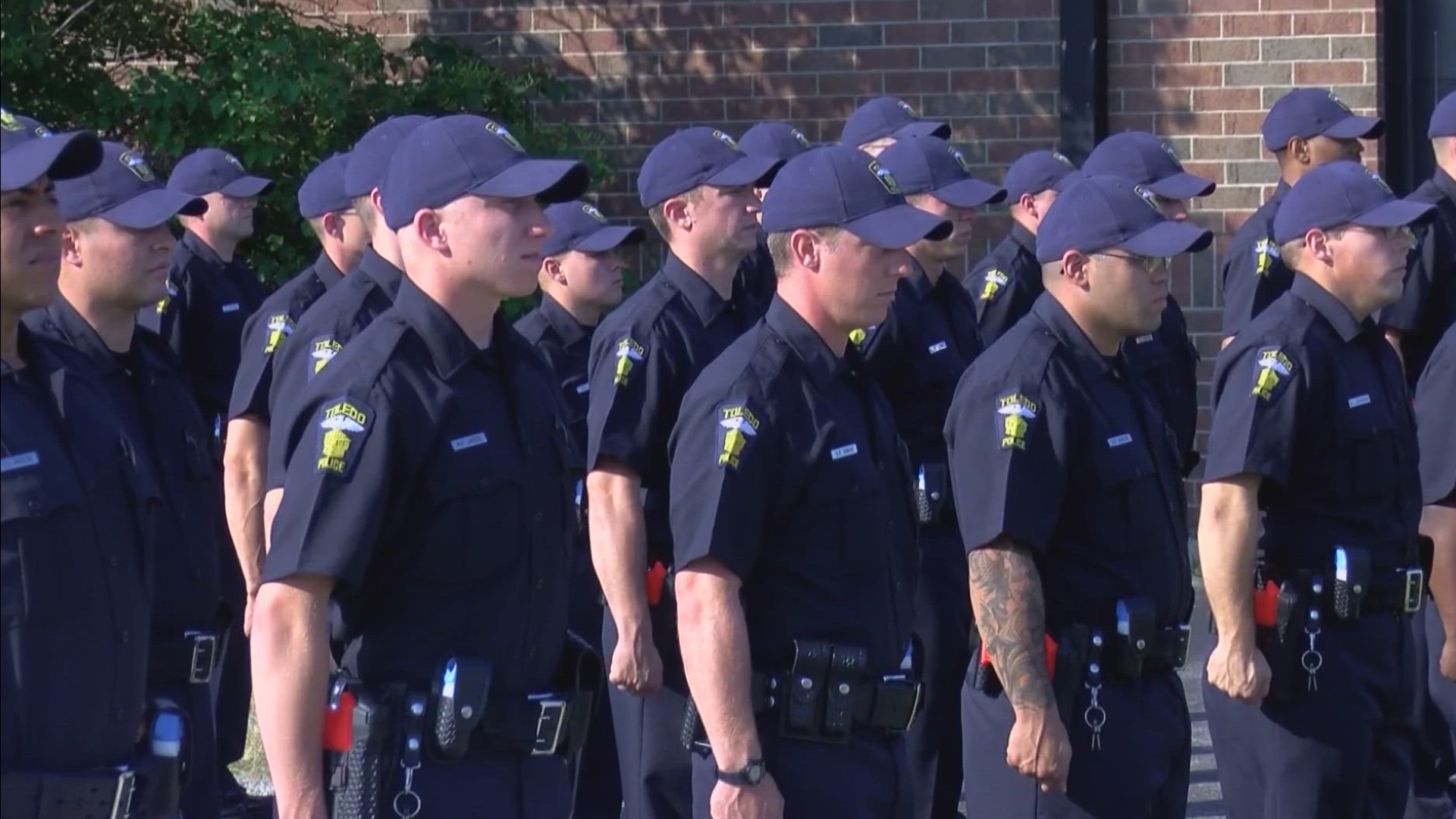TOLEDO, Ohio — A controversial new bill in the Ohio House would change the minimum age to be a police officer from 21 to 18.
The writers of House Bill 84 say it would help address police shortages across the state, giving local departments the option to hire younger recruits if they think they're ready to serve.
The need for more officers has been a consistent issue for the Toledo Police Department over the years. The department's newly-appointed police chief, Mike Troendle, thinks this new bill could finally be the solution his department needs.
"We need more people, so if this gives us more people through the door, it's beneficial," Troendle said.
But in the same breath, he hesitated at the idea of someone so young in a position so challenging.
"I came on (the police force) at 21, and there were days when I'm like, man, I was too young. I wasn't mature enough," Troendle said. "But that doesn't mean it's the same for everyone. Some 25-year-olds aren't as mature as some 18-year-olds, so you have to take it on a case-by-case basis."
It's a concern echoed by Bowling Green State University criminology professor and former police officer Phil Stinson.
Stinson has spent the last 20 years studying police misconduct, collecting the largest database of police crime in the country. He says his findings show there is a startling correlation between police criminality and age.
"Officers who are hired in places that allow for officers to be hired at an age under the age of 21 are more likely to engage in career-ending misconduct, ultimately resulting in them losing their job," Stinson said.
Stinson said that kind of behavior comes from a lack of maturity that is needed when someone wears a badge.
"We see that sometimes the younger officers are more likely to get into off-duty spats," he said. "They are more likely to intervene in things off duty, when a more experienced officer would exercise more discretion and more judgment in how they would handle those situations."
Stinson said new officers often turn to previous life experiences to know how to behave. But in an 18-year-old's case, their most recent prior life experience is high school.
He feared that in the long run, what appears to be a solution to staffing would instead end up piling departments with a series of legal embarrassments.
"It is generally only done in agencies and jurisdictions where they've changed the law to deal with a perceived problem, but it creates other problems," Stinson said. "It is not a best practice, it is highly discouraged, and it's foolish."
Stinson said instead of recruiting out of high school, police stations could try recruiting from criminal justice classes like his own- saying college graduates have more directed study and maturity.
Michael Haynes, the president of the Toledo Patrolman's Association, isn't sure recruiting so young is the solution either. He said he has been in talks with Ohio state Rep. Paula Hicks Hudson, D-Toledo, to actually increase the upper recruitment limit age from 35 to 40 years old.
It's an idea Stinson strongly supports.
"In some places, it seems fairly low, the cutoff. So for example, in some places the cutoff age, or maximum age for a police officer, is so low that if somebody had served, let's say, enlisted 25 years in the military, they would have already passed over the age they could be hired as a local police officer," Stinson said. "So there are other ways to look at this as well."
Right now, the bill is currently awaiting additional hearings in the Homeland Security Committee.
WTOL 11 contacted one of the bill's writers, Ohio state Rep. Josh Williams, R-Oregon, but he was unavailable for comment.

